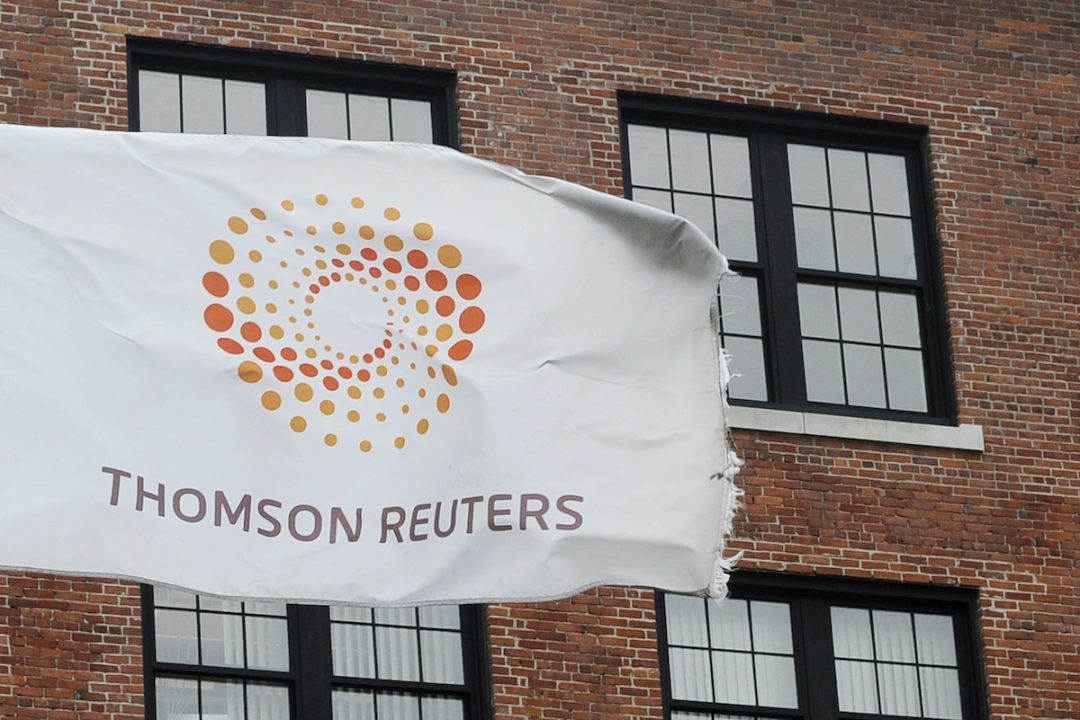
The Associated Press (AP), The New York Times, and other far-left, mainstream media outlets have collected millions of U.S. taxpayer dollars from multiple government agencies.
But a search of USASpending.gov reveals that Reuters News & Media has collected more than $1 billion through the years.
Yet another contract to Thomson Reuters Special Services, an affiliate under the Thomson empire, is also under scrutiny. It came from the Defense Department (DoD) to combat cyberattacks, although the wording of the contract led Elon Musk, chieftain of the Department of Government Efficiency (DOGE), to mischaracterize it on X.
Reuters Gets Rich on Taxpayers’ Dime
The federal government’s out-of-control spending has been the focus of DOGE since President Donald Trump created it by executive order on Inauguration Day.
Since Trump took office, more and more evidence of waste, fraud, and abuse has surfaced on social media, much of it from USAspending.gov. Although the scandalous data have always been available, only when Musk began looking into spending did the material go viral.
As The New American reported last week, AP and the Times have raked in millions of taxpayer dollars, as has the hate-Trump Politico. The total for the three is upwards of $100 million.
But Reuters has been an especially favored beneficiary of taxpayer money. Of course, 99 percent of taxpayers knew it.



The spending website shows that Reuters News & Media Inc. has pocketed $1.2 billion since 2008 from numerous agencies, including the departments of Justice, Treasury, Homeland Security, and Health and Human Services.
It also pulled in big bucks from the Securities and Exchange Commission.
Another Reuters affiliate, Thomson Reuters Special Services LLC, has snared $120 million since 2010.


Musk’s DoD Post
Also going viral thanks to Musk is the Thomson Reuters Special Services contract with the Department of Defense.
Musk retweeted a post about the contract that claimed DoD had paid Reuters — meaning the media outlet — for “social engineering” and “large scale social deception.”
“I can’t believe how good this timeline is!” Topher Field wrote:
Follow this chain of events:
1. Reuters writes hit piece against DOGE.
2. Musk tweets, ‘I wonder what Reuters are being paid?
3. DOGE uncovers Department of Defence contract paying Reuters for ‘Large Scale Social Deception.
It’s crazy that this is happening.
It’s INSANE that it’s playing out in the public square!

“Reuters was literally paid by the federal government for ‘Large Scale Social Deception’,” Musk wrote in his repost. “That’s literally what it says on the official government documents!!” At this writing, the post had received 20.7 million views.
The genesis of Musk’s ire, The Washington Post reported, was a post from movie director Ron Howard, who pointed followers to the Reuters hit piece headlined “Musk’s DOGE cuts based more on political ideology than real cost savings so far.”
Musk quickly replied.
“I wonder how much money Reuters is getting from the government?” he wrote. “Let’s find out.”
A “Shadowy Conspiracy”?
Then came what the Post called the “brouhaha” over the DoD contract. It turns out that Musk, if the Post is right, misinterpreted what he saw.
“The contract was real, but the Orwellian phrase Musk seized on to suggest a shadowy conspiracy wasn’t what it seems,” the far-left newspaper reported:
A slightly closer look would have revealed that the contract, signed during President Donald Trump’s first term, was for help defending against cyberattacks — that is, combating deception, not fueling it. And it went to a separate division of the company, not the news agency.
The Post provided a link to the project, which was sponsored by the Defense Advanced Research Projects Agency. Its website explained that the contract was meant to block social engineering and large-scale social deception by tackling cyberattacks.
“To build secure cyber systems, it is necessary to protect not only the computers and networks that make up these systems but their human users as well,” the website says:
We call attacks on humans “social engineering” because they manipulate or “engineer” users into performing desired actions or divulging sensitive information. The most general social engineering attacks simply attempt to get unsuspecting internet users to click on malicious links.
More focused attacks attempt to elicit sensitive information, such as passwords or private information from organizations or steal things of value from particular individuals by earning unwarranted trust.
These attacks always have an “ask,” a desired behavior that the attacker wants to induce from the victim. To do this, they need trust from the victim, which is typically earned through interaction or co-opted via a spoofed or stolen identity. Depending on the level of sophistication, these attacks will go after individuals, organizations, or wide swathes of the population.
Fair enough, if that’s the truth. And again, the contract was not with the once-respected wire service, but with another Thomson company that “serves Federal law enforcement, the U.S. defense and intelligence communities, and commercial and international businesses.”
Yet even if the “shadowy conspiracy” Musk saw wasn’t there, that doesn’t mean “shadowy conspiracies” are a figment of the Tesla tycoon’s imagination, as Post reporters would surely know from their reporting on these two matters:
• The Russia Collusion Hoax, a conspiracy of the Clinton campaign and Obama administration to wreck President Trump in 2016; and
• The conspiracy to hide the truth about Hunter Biden’s laptop, which 51 former intelligence officials falsely called Russian disinformation, a lie the media dutifully repeated.
For a little historical perspective, the Posties might look into the CIA’s MKUltra project, a mind-control program that involved dosing unsuspecting Americans with LSD. They might also read up on the conspiracy to involve the United States in World War II by goading Japan to attack Pearl Harbor.
The Post collected $34,297 from taxpayers between 2008 and 2013.






